Often overshadowed, Rachel's sister Leah in the Bible harbors a tale of resilience and hidden depths, beckoning a closer look.
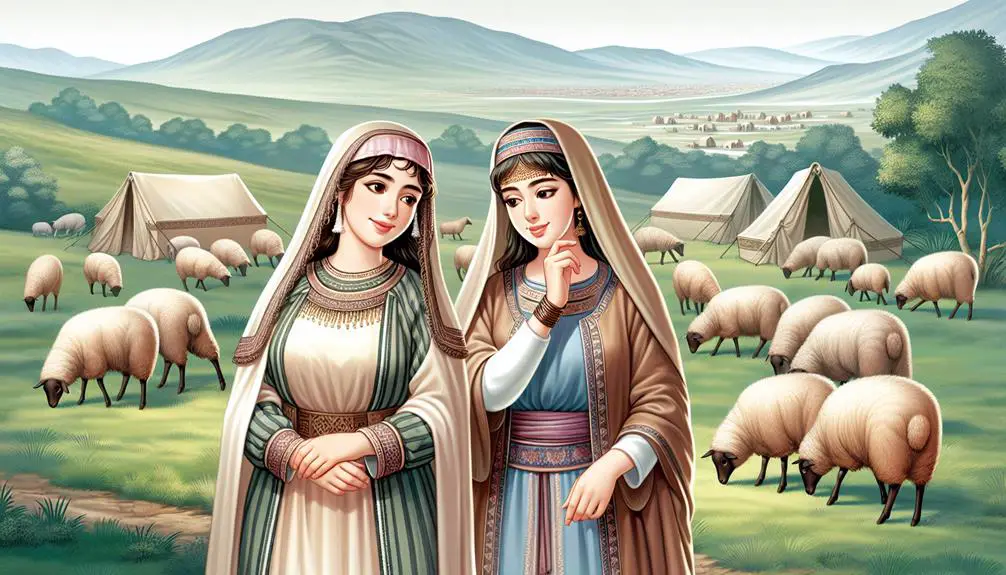
Rachel's Sister in the Bible
You might not know that Leah, Rachel's sister, is considered by many scholars to be the unsung matriarch of the Bible. As you explore her story, you'll uncover layers of complexity in her marriage to Jacob, a union that was initially marked by deception and heartache.
Leah's narrative isn't just about her rivalry with Rachel; it's a testament to her resilience and spiritual growth amidst adversity. Her legacy, through her children, has profoundly shaped the course of biblical history.
This invites you to ponder on the lessons Leah's life imparts, especially in the realms of faith and personal transformation.
Key Takeaways
- Leah, Rachel's sister, played a pivotal role in biblical history through her resilience and faith.
- Despite being overshadowed by Rachel's love for Jacob, Leah's legacy thrives through her sons, shaping Israel's future.
- Leah and Rachel's complex relationship evolved from rivalry to mutual respect, reflecting deep familial bonds.
- Leah's story exemplifies strength in adversity, showcasing her as a symbol of perseverance and faith in biblical narratives.
Leah's Early Life
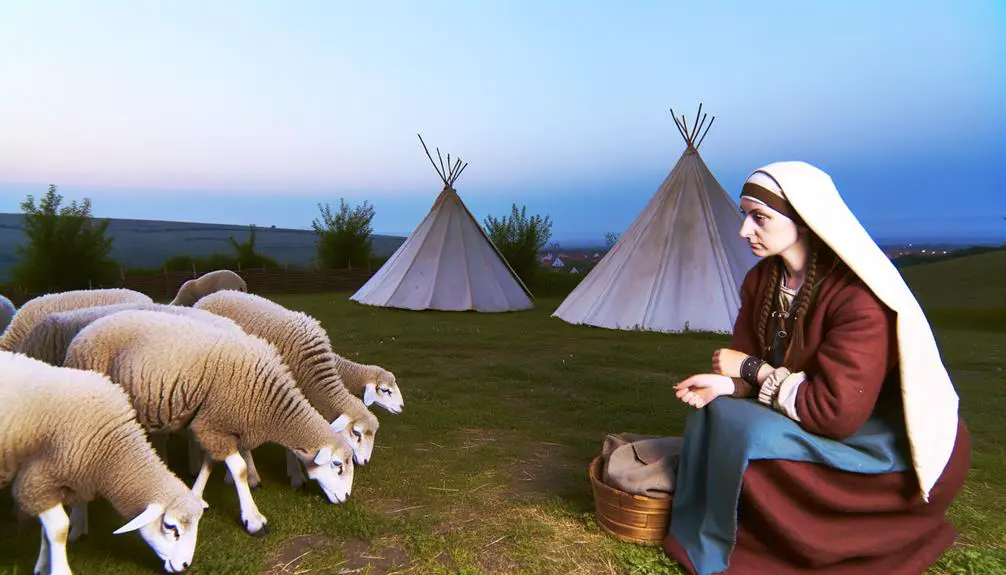
Before Rachel captured the heart of Jacob, her sister Leah played a pivotal, yet often overshadowed, role in the biblical narrative, showcasing resilience and faith in the face of adversity. You can't help but admire Leah's resilience, a quality deeply ingrained in her from an early age. Growing up in the shadow of her younger sister, Leah's experiences molded her into a woman of remarkable strength and character. It's essential to understand that her resilience wasn't just a personal trait but a testament to her family heritage.
Leah's early life, steeped in the rich traditions of her ancestors, laid a foundation of faith and perseverance. She was born into a family that was part of a larger narrative, one that would shape the destiny of a nation. Leah's heritage was a tapestry of promises made by God to her forefathers, promises of blessing, land, and a multitude of descendants. This heritage wasn't merely about lineage or status; it was about carrying forward a legacy of faith in God's providence.
Leah's resilience wasn't born in a vacuum. It was nurtured by a family heritage that valued steadfastness in the face of trials. Her life, though marked by moments of pain and overlooked achievements, was a testament to the strength that comes from faith and the enduring spirit inherited from her ancestors. Leah's story, from its beginnings, is a profound reminder of the complexity and depth found in the tapestry of family heritage and personal faith.
Marriage to Jacob
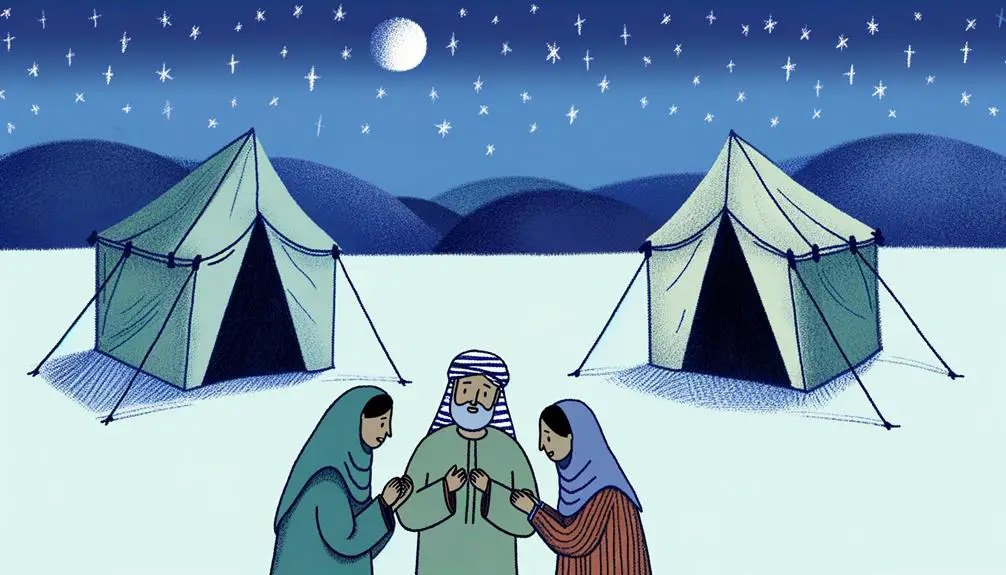
As you explore Leah's marriage to Jacob, you'll encounter the complexity of her unexpected union, a pivotal moment that intertwines divine providence with human emotion.
You'll also unravel Jacob's unwavering love for Rachel, a sentiment that casts a long shadow over the family's dynamics, including the practice of polygamy.
This analysis invites you to appreciate the intricacies of their relationships, acknowledging the profound impact on the broader narrative of biblical history.
Leah's Unexpected Union
Leah's marriage to Jacob, orchestrated under the veil of deception, marks a pivotal moment in biblical narratives, revealing profound lessons about love, commitment, and divine providence. This union, unexpected as it was, sheds light on the complex interplay of cultural norms and marriage customs of the time.
- Cultural norms dictated familial arrangements over individual desires.
- Marriage customs often involved strategic alliances, sometimes at the expense of personal feelings.
- Divine providence is seen in the unfolding of events, suggesting a higher purpose behind apparent injustices.
Leah's story invites you to ponder the intricacies of human relationships, intertwined with the divine tapestry. It's a testament to resilience and the often-unseen plans that shape destinies, urging a deeper understanding and appreciation of the ways in which historical contexts and spiritual narratives converge.
Jacob's Love for Rachel
Jacob's profound love for Rachel, marked by a remarkable devotion, sets the stage for a pivotal chapter in biblical history, underscoring themes of love's endurance and the complexities of human desire intertwined with divine intention.
In a pastoral setting, Jacob meets Rachel, igniting an unwavering love that endures years of labor under Laban, Rachel's father. This narrative, rich in pastoral imagery, juxtaposes the serenity of rural life with the tumult of romantic deception.
Jacob's willingness to serve fourteen years for Rachel's hand, only to be deceived into marrying Leah, her sister, first, highlights the depth of his love and the intricate dance between human plans and divine will. This saga, while celebrating love's triumph, also preludes the ensuing family dynamics shaped by these unions.
Polygamy and Family Dynamics
When Jacob married Rachel, despite already being wed to her sister Leah, the foundation was laid for complex family dynamics fueled by polygamy, setting a precedent for the exploration of its impacts on individual relationships and collective family welfare.
You'll find that legal perspectives and cultural norms of the time not only accepted but often encouraged polygamy, highlighting:
- The legal recognition of multiple spouses simultaneously.
- Cultural acceptance, where polygamy was seen as a means to increase family size and social standing.
- The inevitable emotional and relational challenges within a polygamous family setting.
Understanding these dynamics sheds light on the nuanced interplay between love, duty, and societal expectations, offering a profound insight into the struggles and reconciliations within Jacob's family and, by extension, similar ancient households.
Sisterly Rivalry
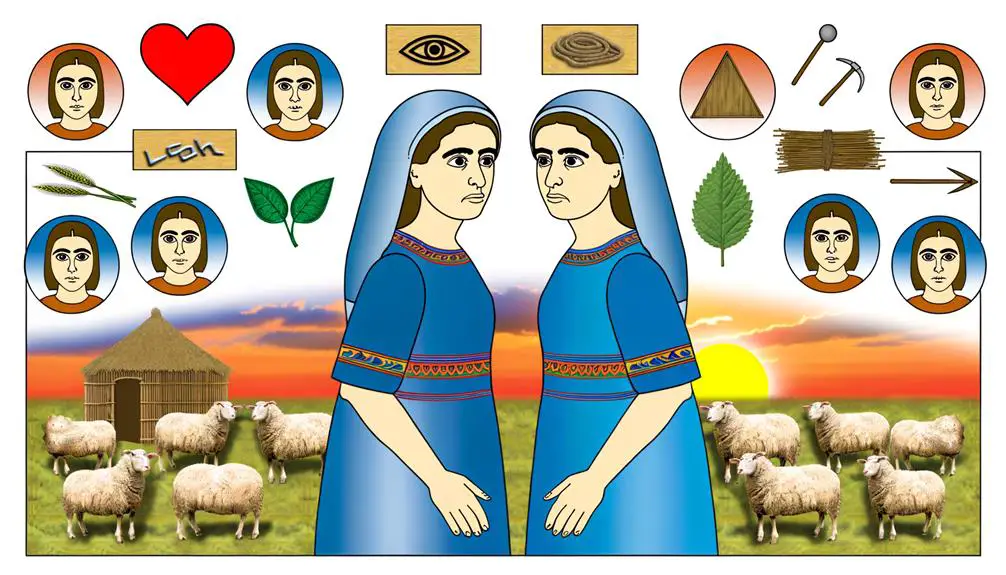
In the biblical narrative, sibling rivalry unfolds as Rachel and Leah vie for the affection and validation of their shared husband, Jacob, demonstrating a complex dynamic of competition and desire for prominence within their family. This rivalry, while rooted in love for the same man, also reveals deeper layers of personal ambitions and the quest for individual significance. You see, Rachel and Leah's struggle isn't just about Jacob; it's about their longing to fulfill personal destinies within the constraints of their societal and familial roles. Their story is a poignant exploration of how personal ambitions can strain sibling support, turning sisters into rivals.
Amidst this rivalry, you find moments where the potential for sibling support flickers, hinting at a complicated relationship that's both competitive and cooperative. They navigate their shared life with Jacob, each trying to carve out a space for herself, to be seen and valued. This balancing act of seeking personal validation while maintaining a thread of sisterly connection showcases the nuanced nature of their relationship.
The narrative doesn't shy away from the pain and complexity of their rivalry. It delves into the heartache and longing that accompany their fight for recognition, both from Jacob and within their broader family context. Through Rachel and Leah, you're invited to reflect on the profound impact of personal ambitions on sibling relationships, and how those relationships can oscillate between support and competition. Their story is a timeless examination of the human desire for love, validation, and a sense of belonging within the intricate tapestry of family dynamics.
Leah's Children
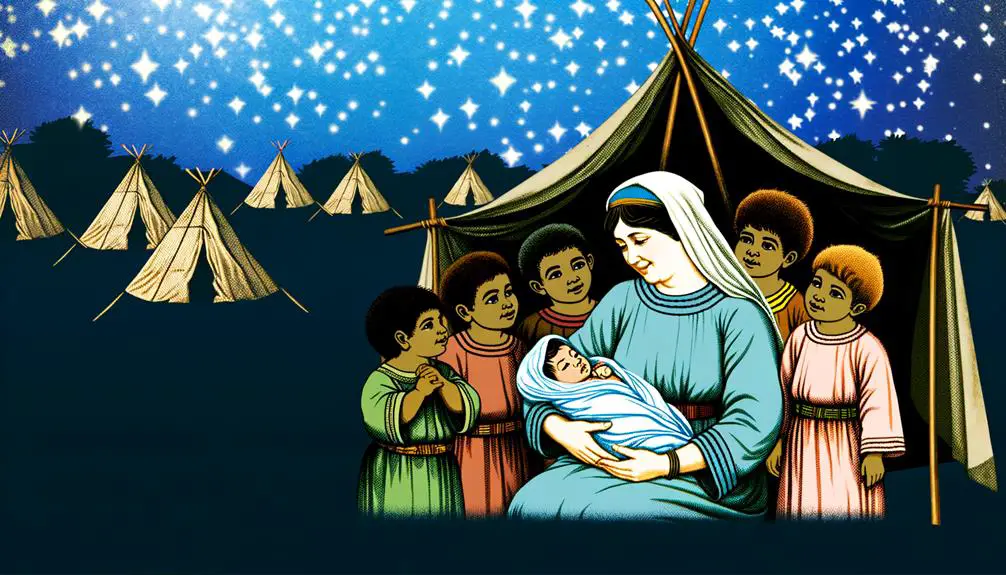
Amid the complex web of rivalry and yearning for validation, Leah's children emerge as pivotal figures, underscoring the depth of her contribution to the family's legacy. As the first wife of Jacob, Leah's status within the narrative is often overshadowed by her sister Rachel's. Yet, her role as a matriarch is critical, not only in the biblical story but in the shaping of tribal identities and the importance of maternal health.
Leah's bearing of six sons and a daughter is a testament to her resilience and strength. These children would go on to become founders of half of the tribes of Israel, a legacy that can't be overstated. Through Leah, we're reminded of the significance of motherhood in the ancient world, and the profound impact maternal health had on societal structures and family dynamics.
- Tribal identities: Leah's sons were instrumental in the formation of the Israelite nation, each tribe carrying unique characteristics and roles within the society.
- Maternal health: Leah's ability to bear children, in stark contrast to Rachel's initial barrenness, highlights the importance placed on fertility and the pressures faced by women to contribute to their family's lineage.
- Legacy: Despite the personal challenges Leah faced, her legacy is enduring, with her children playing crucial roles in the narrative of the Israelite people.
In analyzing Leah's contribution through her children, it's clear that her impact is both profound and far-reaching. Her story is a powerful reminder of the strength found in adversity and the indelible mark one person can leave on the future of a nation.
Spiritual Growth

You'll find that Leah's journey in the Bible offers a profound template for spiritual growth.
By emulating her steadfast faith amidst trials, you confront the challenge of overcoming envy, a sentiment that often hinders spiritual progress.
Embracing growth, as Leah did, requires a heart open to transformation and the humility to learn from every circumstance.
Emulating Leah's Faith
Leah's faith, often overshadowed by her sister Rachel's story in the Bible, offers profound lessons in spiritual resilience and growth. Emulating Leah's faith journey involves recognizing the intricate ways Divine intervention shapes our lives. Her story is a testament to faith resilience, showcasing how steadfast belief in the midst of trials can lead to profound spiritual growth.
To embody Leah's example, consider:
- Seeking strength in prayer during challenging times
- Acknowledging the role of Divine intervention in your life
- Cultivating gratitude for the blessings, often hidden, that come through faith
Leah's narrative encourages you to find grace in adversity, reminding you that faith's journey is as much about the unseen blessings as it's about the visible triumphs.
Overcoming Envy, Embracing Growth
While exploring Leah's journey teaches us the value of faith in adversity, understanding and overcoming envy is essential for true spiritual growth. Envy, when left unchecked, can hinder personal development, clouding your ability to see your own worth and path.
Yet, when you confront and dismantle its grip, you pave the way for profound growth. It's about transforming envy into a catalyst for self-improvement rather than a stumbling block. Embrace healthy competition as a means to elevate yourself, not to diminish others. This mindset shift is pivotal.
It encourages you to celebrate others' successes while diligently working on your own goals. In doing so, you'll find that personal development isn't a solitary journey but a shared experience, enriched by mutual respect and admiration.
Leah's Legacy
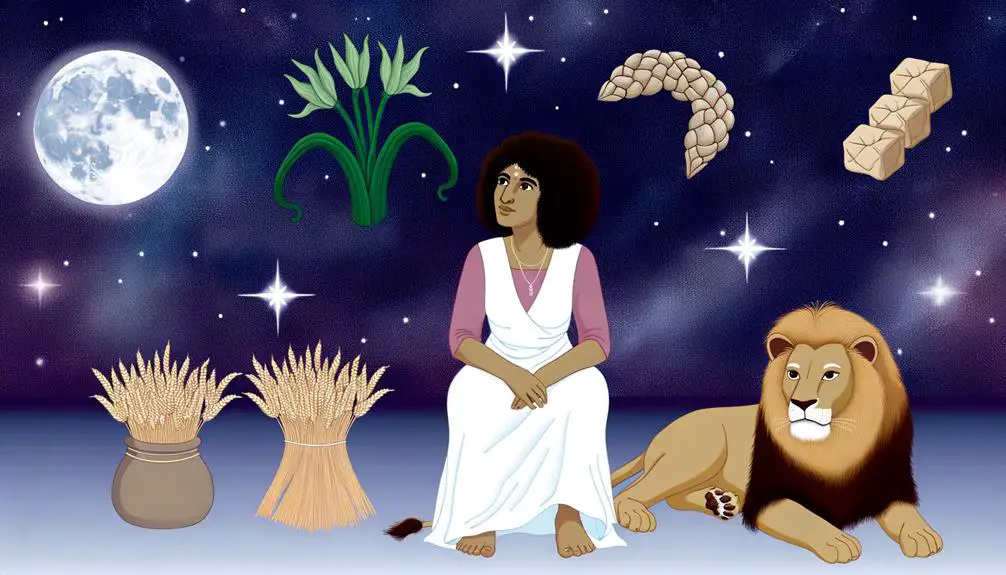
In examining the biblical narrative, one can't overlook the profound impact that Leah, Rachel's sister, had on the lineage of the Israelites, shaping a legacy that resonates through generations. Her story isn't just a tale of personal triumph and resilience but a narrative rich with ancestral significance and cultural impact. Leah's life, marked by her initial unchosen status and eventual rise to matriarchal prominence, offers a deep well of insight into the complexities of divine favor and human struggle.
Leah's contributions to her family and faith community are monumental, ensuring her place in the annals of religious history. Among her many achievements, a few stand out for their enduring significance:
- Motherhood of Tribes: Leah bore six of Jacob's sons, who'd become founders of half the tribes of Israel, embedding her directly into the fabric of Israelite identity.
- Spiritual Matriarch: Her perseverance and faith underpin many Jewish traditions, reinforcing her role as a spiritual ancestor.
- Cultural Architect: Through her sons, Leah influenced the social, religious, and political landscapes of the Israelite people, shaping the culture in profound ways.
Leah's legacy is a testament to the power of faith, resilience, and the impact one life can have on the course of history. Her story, woven into the larger biblical narrative, reminds us of the intricate ways in which personal stories intersect with divine purpose, shaping not only the lives of individuals but the destiny of a people. As you delve deeper into Leah's life, consider how her legacy of faith and fortitude continues to inspire and challenge us today.
Rachel and Leah's Relationship
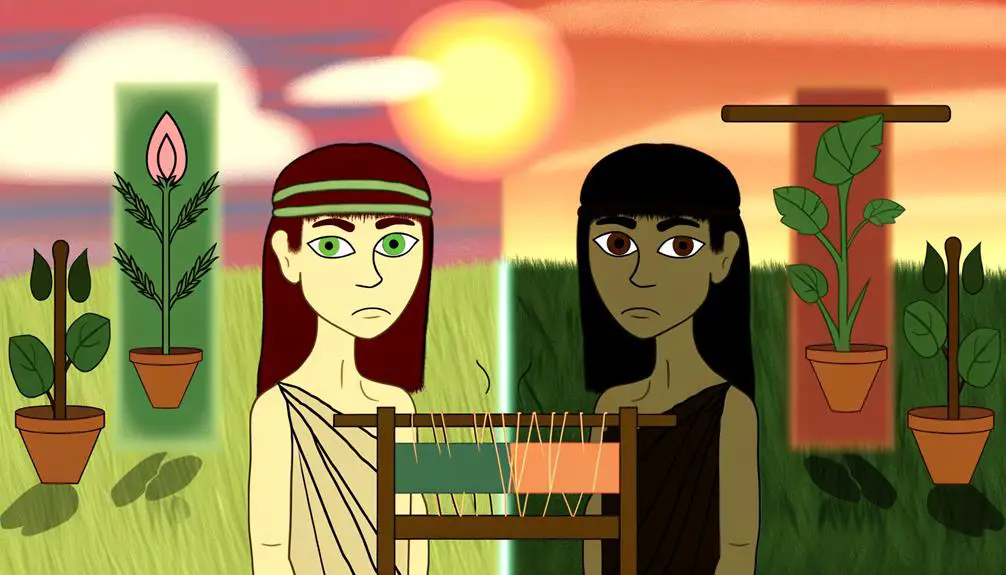
Exploring the dynamics between Rachel and Leah uncovers a complex web of emotions, rivalries, and ultimately, reconciliation that shapes their shared narrative within biblical history. You'll find that sibling bonds, often fraught with competition, can also be a source of strength and unity, especially when viewed through the lens of cultural norms of their time.
In the heart of their story, Rachel and Leah represent two sides of the same coin, entangled in a familial and societal structure that pits them against each other in their quest for love, recognition, and motherhood. Cultural norms of their era dictated their worth by their ability to bear children, intensifying the rivalry between them. Yet, despite the external pressures and internal conflicts, their relationship evolves.
You can't help but admire the resilience of their sibling bond, as it withstands the trials of jealousy and competition. The narrative doesn't shy away from the pain and bitterness their rivalry incites, yet it also doesn't overlook moments of empathy and mutual understanding that emerge over time.
The evolving relationship between Rachel and Leah offers a poignant reflection on the complexities of sibling bonds, marred by competition yet capable of reaching a state of peaceful coexistence. It's a testament to their strength and character, navigating through cultural expectations to find a semblance of harmony in their intertwined lives.
Rachel and Leah's story isn't just about rivalry; it's a deeper exploration of how familial relationships can adapt, mend, and ultimately, reveal a shared resilience that transcends individual grievances. Their journey from discord to reconciliation highlights the enduring nature of sibling bonds, even in the face of overwhelming cultural and personal challenges.
Reflections on Leah's Story
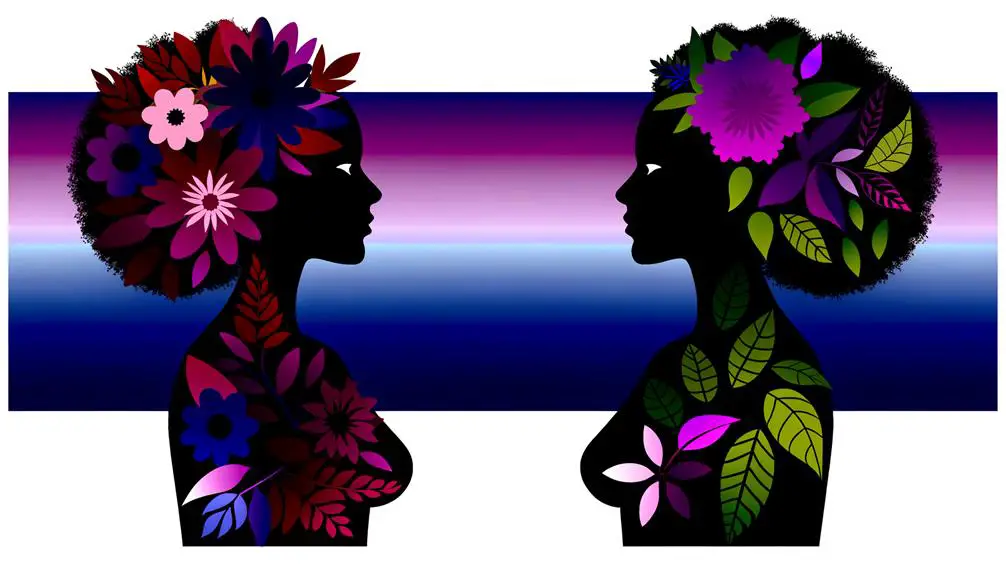
Leah's narrative in the Bible unfolds as a poignant tale of perseverance and unacknowledged worth, challenging you to delve deep into the complexities of her character and the societal norms that shaped her life. In a world where her desires and feelings were secondary to societal pressures and familial strategies, Leah's resilience shines through, offering a profound reflection on the human spirit's capacity to endure and find meaning in adversity.
Leah's story prompts you to reflect on the harsh realities of her existence, married to a man who didn't choose her, living in the shadow of her sister's desirability. Yet, it's her unyielding spirit and faith that stand out, painting a picture of a woman who, despite everything, contributes significantly to her family and faith's lineage.
To understand the depth of Leah's journey, consider these points:
- Leah's resilience isn't just a testament to her strength but also a reflection of her deep faith and hope for recognition and love.
- Societal pressures played a colossal role in shaping Leah's life, pushing her into a marriage that marked her days with emotional strife yet also set the stage for her remarkable legacy.
- The unacknowledged worth of Leah speaks volumes about the historical undervaluation of women's contributions and the silent, enduring strength they've always possessed.
As you reflect on Leah's story, it becomes evident that her narrative isn't just a historical account; it's a mirror reflecting the ongoing struggle for recognition and value, urging a reevaluation of societal norms that overlook the quiet strength and resilience of individuals like Leah.
Frequently Asked Questions
How Did Cultural Practices of the Time Influence the Sibling Dynamics Between Rachel and Leah Beyond Their Personal Rivalry?
You're diving into how cultural norms shaped sibling relationships beyond personal feuds. Marriage customs and a patriarchal society heavily influenced these dynamics.
In such settings, women's value was often tied to their roles as wives and mothers, intensifying competition. This backdrop made the rivalry more than personal; it was deeply rooted in the societal framework.
Understanding this context highlights the complexities of their relationship, offering a reverent, analytical view of their story.
What Are the Historical and Archaeological Evidences That Support the Existence of Rachel and Leah?
As you delve into the sands of time, seeking whispers of the past, you'll find artifact dating and genealogical records as silent guardians of history. These tools unearth truths from the shadows, offering glimpses into the lives of figures long gone.
In the case of Rachel and Leah, such evidences, though scarce, serve as bridges to their existence, painting a story beyond mere tales, and grounding their legacy in the realm of the tangible.
How Have Various Religious Traditions Outside of Judaism and Christianity Interpreted the Stories of Rachel and Leah?
You'll find that various religious traditions, notably Islamic perspectives, offer unique interpretations of these narratives, enriching your understanding beyond traditional Judeo-Christian viewpoints.
Islamic texts, for instance, delve into the moral and spiritual lessons derived from their lives, while cultural symbolism across different societies adds layers of meaning, reflecting diverse values and insights.
This analytical exploration reveals a reverent appreciation for their stories across a broad spectrum of beliefs and traditions.
In What Ways Have Modern Feminist Interpretations Reevaluated the Roles and Representations of Rachel and Leah in the Bible?
You're exploring how modern feminist interpretations have reevaluated the portrayals of women in historical texts, focusing on gender narratives and interpretive shifts. These analyses offer a fresh lens, revealing the complexity and agency within their stories.
How Do the Stories of Rachel and Leah Inspire Contemporary Art, Literature, and Media, Suggesting Their Influence Beyond Religious Texts?
Imagine a novel where two sisters' rivalry and reconciliation weave through its pages. It's not just a story; it's an echo of Rachel and Leah's tales, inspiring artistic motifs and literary parallels beyond their biblical origins.
Their narratives fuel contemporary art, literature, and media, offering rich, multi-layered themes of love, jealousy, and redemption. These ancient stories continue to resonate, proving their timeless relevance and profound influence on modern creative expressions.
Conclusion
Leah's narrative offers profound insights into personal growth and the dynamics of familial relationships.
Interestingly, despite the initial competition with Rachel, Leah became the matriarch of six of the twelve tribes of Israel, a testament to her significant legacy.
This statistic not only highlights her pivotal role in biblical history but also underscores the complexity of her journey from rivalry to spiritual maturity.
Leah's story invites deep reflection on resilience, faith, and the intricate tapestry of human connections.

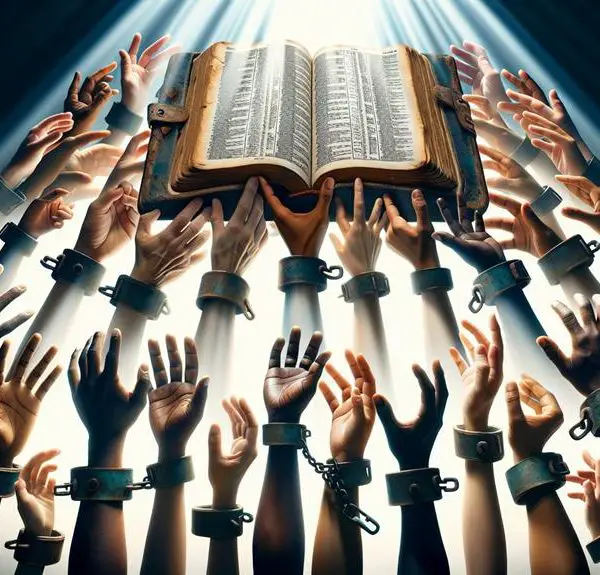
Sign up